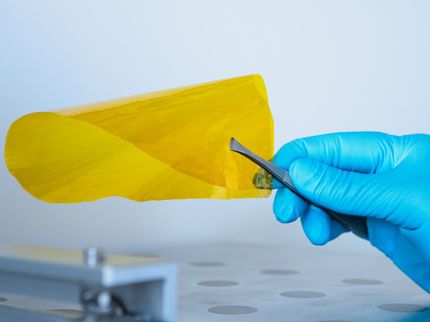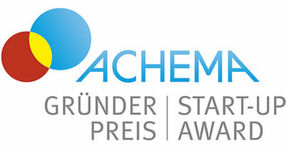BASF and Siemens Energy to cooperate in the field of Carbon Management
Strategic partnership for industrial use of low-CO2 technologies
Advertisement
As part of a strategic partnership, BASF and Siemens Energy plan to accelerate commercial implementation of new technologies designed to lower greenhouse gas emissions. By combining BASF’s technological expertise with Siemens Energy’s innovative product and services portfolio, BASF aims to extend its leading role in lowering CO2 emissions in chemical production. Several pilot projects at its Ludwigshafen site are under discussion.

Symbolic image
pixabay.com
Possible pilot projects include the construction of a PEM (proton exchange membrane) electrolyzer for hydrogen production with an output of 50 megawatts with the possibility of modular capacity expansions and the installation of a high-temperature 50 megawatts thermal heat pump for generating process steam from waste heat in a production plant. In addition, a modernization of the power grid at the Ludwigshafen site using digital and CO2-optimized products from Siemens Energy is being evaluated. Furthermore, a study is underway to assess the potential for common system and catalytic converter development in an effort to boost the efficiency of electrolysis plants (PEM electrolysis) and for collaboration in generating electricity from wind energy.
Dr. Christian Bruch, Chief Executive Officer of Siemens Energy AG: “BASF is in a leading position in the chemical industry and is a pioneer in the area of innovation for climate-compatible production of chemicals. Numerous future technologies are still at an early stage of development. By joining forces with BASF, we want to exploit the experience gained in pilot projects as a basis for implementation of new technologies and concepts and thus play an active role in shaping the energy transition in the process industry. Our strategic objective, in our role as a reliable and experienced partner for all types of energy systems, is to help address the growing demand for goods and services and at the same time contribute towards achieving the climate protection targets on our path to a more sustainable world.”
Dr. Martin Brudermüller, Chairman of the Board of Executive Directors of BASF SE: “By cooperating with Siemens Energy, we stand to benefit from the expertise of a first-class partner for implementing our carbon management, a partner with whom we can accomplish projects of a commercial scale. At BASF, we want to develop and implement new low-CO2 technologies as quickly as possible. If we want to use such technologies on a large scale, we will need appropriate regulatory framework conditions and targeted support. We need renewable electricity in large quantities for this, and we need it at competitive prices.”
BASF has sought further reduction of greenhouse gas emissions within the scope of its Carbon Management since 2018. Until the year 2030, the absolute level of BASF’s emissions is targeted not to exceed that of 2018. With a planned substantial increase in production volumes, this means a further reduction of the emission intensity by around 30% in this period. In tandem with the availability of newly developed technologies and the increased use of renewable energies, BASF also aims to further reduce its emissions in absolute terms beyond the year 2030. This will lead to a significant increase in BASF’s demand for electricity from renewable sources.
BASF and Siemens Energy have signed a memorandum of understanding for their strategic partnership, which will focus above all on supporting the chemical company in achieving its ambitious climate targets. For Siemens Energy, the partnership represents a further key step toward pursuing its strategic goals, namely low-emission or emission-free generation of electricity and heat, transmission and storage of electricity, a smaller carbon footprint and lower energy consumption in industrial processes as well as shaping a sustainable hydrogen economy.
BASF and Siemens Energy will strive to study the pilot projects identified for technical and commercial feasibility as soon as possible in order to be able to reliably quantify the investments needed and to launch the implementation of the pilot projects within the scope of the currently prevailing framework conditions.

































































